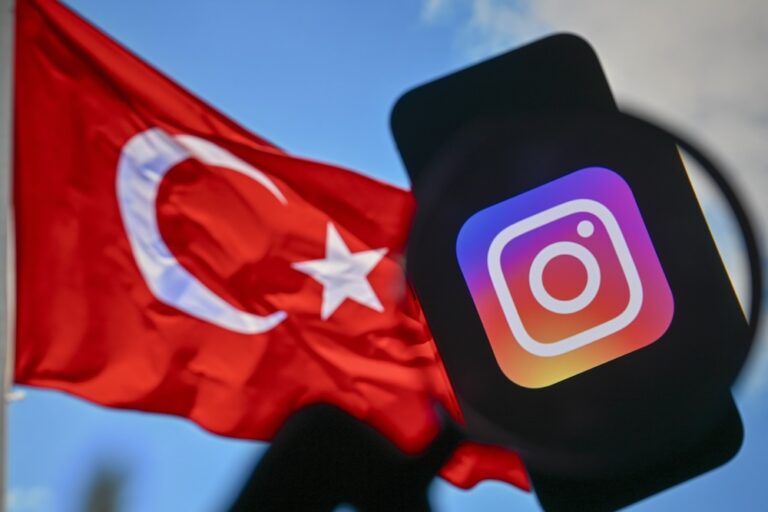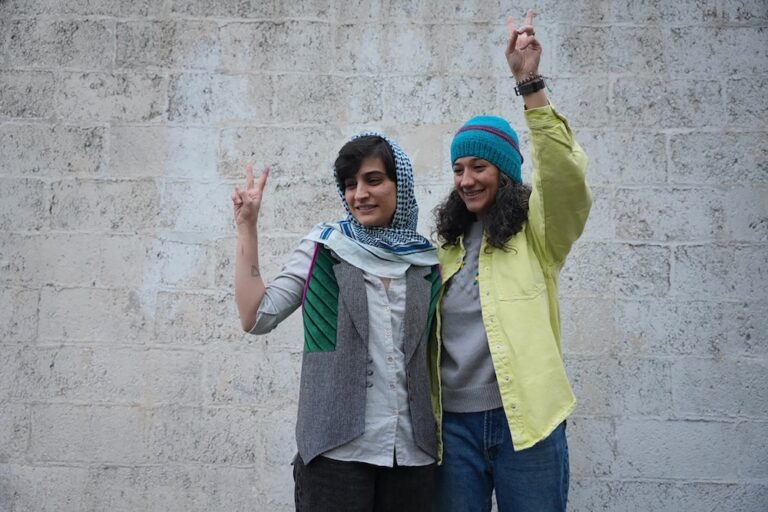Ali Ferzat was chosen as 2011 Journalist of the Year for his commitment to defending media freedom, while "Weekly Eleven News" was honoured with the Media of the Year prize for daring to run stories on subjects regarded as sensitive by Burmese authorities.
(RSF/IFEX) – 8 December 2011 – With the support of TV5MONDE, Reporters Without Borders and Le Monde are pleased to award the 2011 Press Freedom Prize to two symbols of courage, Syrian newspaper cartoonist Ali Ferzat and the Burmese newspaper Weekly Eleven News. The award ceremony was held today at the Le Monde auditorium in Paris.
“This year we are honouring a courageous journalist who has been the victim of brutal repression by an obsolete government,” Reporters Without Borders secretary-general Jean-François Julliard said. “Ali Ferzat fully deserves this award. His cartoons target the abuses of a desperate regime with its back to the wall and encourage Syrians to demand their rights and to express themselves freely.
“We are also honouring a newspaper that has never bowed to Burma’s censors. Weekly Eleven News has always stood up to the military junta, using extraordinary ingenuity to slip through the censorship net and inform the Burmese public. Its editors and reporters have taken considerable risks and deserve our encouragement. At a time when Burmese political life and society seem to be showing signs of opening up, Weekly Eleven News has more than ever a key role to play.”
Ferzat was chosen as 2011 Journalist of the Year because of the quality of his cartoons and his commitment to defending media freedom. Original and rebellious, his non-conformist attitude and creativity have earned him powerful enemies, including Iraq’s Saddam Hussein, who threatened to have him killed after an exhibition of his cartoons in Paris in 1989. He was banned from visiting Jordan, Iraq and Libya for years.
Al-Domari, the satirical newspaper Ferzat launched in 2000, was the first independent publication since the Baath Party takeover. The authorities forced it to close three years later. Since this spring, the street protests and ensuing crackdown have been at the centre of his work. For denouncing the corruption and abuses of Bashar Al-Assad’s rule, he was attacked in August by masked gunmen, who broke his hands as a warning.
“I would have liked to have been with you this evening to take part in this beautiful event,” Ferzat said in a letter read out by the French cartoonist Plantu. “I dedicate this award to the martyrs, to those who have been injured and to those who struggle for freedom. May thanks be given to all those who have turned the Arab Spring into a victory over darkness and repression.”
Presenting the 2011 Media of the Year prize to Weekly Eleven News, the writer and journalist Jean Rolin, winner of the Albert Londres Prize in 1988, paid tribute to Reporters Without Borders’ local correspondents and to all journalists working on the ground in difficult parts of the world.
Burma is one of the world’s most repressive countries for the media, and the staff at Weekly Eleven News often risk prison by daring to run stories on subjects that the authorities regard as sensitive. In August, it paid a high price for defying government orders not to cover the flooding in the northern city of Mandalay. Several of its journalists were arrested and it was forbidden to publish for several weeks.
“At Weekly Eleven News, we firmly believe and we maintain that nothing can be more powerful than the truth,” the newspaper’s spokesman said. “We are honoured to receive this award, but we are also very sad when we think of all the Burmese journalists who are still in prison. We must never forget the sacrifices that some have made so that change may come to Burma.”
The Reporters Without Borders Prize has been awarded every year since 1992 to a journalist and a news media outlet in different parts of the world that have made a significant contribution to the defence and promotion of press freedom. The prize winners are selected by an international jury of journalists and human rights activists.
Le Monde decided to become a partner in the prize this year. The newspaper’s publisher, Erik Izraelewicz, explains: “From Sidi Bouzid to Sanaa, from Rangoon to Benghazi, from Damascus to Cairo, there has been no shortage of major developments in 2011. The international media have covered them without forgetting that local journalists, often at risk to their lives, have for years been combating the constant violations of media freedom in these places. For 20 years, the Reporters Without Borders Prize for Press Freedom has been reminding the public that their struggle is also our struggle. Le Monde is pleased to join Reporters Without Borders in this undertaking.”
The Press Freedom Prize also received the support of TV5MONDE. Marie-Christine Saragosse, director general, added: “This is a logical involvement for a French-language TV station whose universal values are transmitted every day in the 200 countries where we are present. TV5MONDE has decided to participate in this prize and thereby join with those who constantly strive to bear witness, often at the cost of their freedom or their lives, to a world in rebellion and to the realities of war.”


